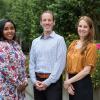
Strengthening Health and Health Care for Diverse Communities
The Center for Disease Control last year issued a landmark update: for the first time, their breastfeeding guidelines include recommendations for people living with HIV.
The decision is a significant milestone for those living with HIV, a population that numbers more than 1 million nationwide. But how do people living with HIV breastfeed and chestfeed safely? How can health care providers be equipped with the expertise to support their patients’ infant feeding decisions?
Doctoral student Laura Cox, MS ’22, RN, is exploring these and other questions as a scholar in the UCSF School of Nursing’s new Next Generation Nurse Scientists Ending the HIV Epidemic (Next Gen Nursing EHE) training program.
“This is a critical moment to support people living with HIV and those that provide them care,” says Cox.
Next Gen Nursing EHE is the school’s latest initiative to improve health and health care access for diverse communities.
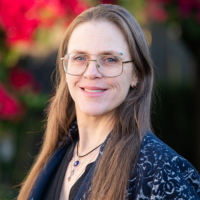
From ending the HIV epidemic to defending women who were forcefully sterilized, the school’s faculty, staff and students are engaged in research and projects that elevate the health of underrepresented populations, including across race, ethnicity, sexual and gender minorities, and income levels.
Nurse Scientists Ending the HIV Epidemic
Co-directed by professors Carol Dawson-Rose, PhD, RN, FAAN, and Glenn-Milo Santos, PhD, MPH, Next Gen Nursing EHE builds on nearly three decades of cutting-edge HIV research and training in the School of Nursing. The program trains a diverse group of nurse scientists — four predoctoral and two postdoctoral nurse scholars each year — in research methods to lead efforts to end the HIV epidemic. It is supported by a grant from the National Institute of Nursing Research.
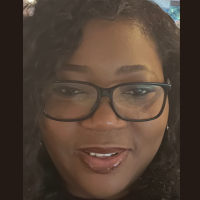
Nneka Umeh, MS, PMHNP-BC, FNP-BC, cares for inmates with severe mental illness in the Santa Clara County jail system. As a predoctoral scholar in the Next Gen Nursing EHE program, Umeh is researching how HIV, COVID-19, mental illness and substance use affect the mental and physical health of the incarcerated Black population.
“The COVID-19 pandemic was a reminder that there is still so much that is unknown about HIV and its intersection with other health conditions,” Umeh reflects. “Training programs like Next Gen Nursing EHE are essential for continued progress towards the goal of eliminating HIV.”
Next Gen Nursing EHE includes mentorship, seminars with HIV experts and opportunities for collaboration with organizations like the AIDS Research Institute, the Center for AIDS Research, and the Center for AIDS Prevention Studies, along with clinical settings that include the original San Francisco Model clinic, Ward 86 at Zuckerberg San Francisco General Hospital.
“Next Gen Nursing EHE provides access to highly successful leaders in the field of HIV who are invested in helping us grow as budding HIV researchers,” says predoctoral scholar Taylor Cuffaro, MS ’20, NP, AAHIVS, who works to improve care for gender and sexual minority patients and for unhoused patients – two groups that are disproportionately impacted by HIV.
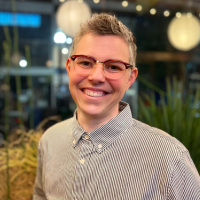
Advocating for Survivors of State-Sponsored Sterilizations
About 20,000 people were sterilized without their consent in California state homes and state-run hospitals between 1919 and 1979 as part of the California Eugenics Program. Even after the program was banned, at least 148 additional people were forcefully sterilized without consent between 2006-2010. Most were Black, Latinx or Indigenous women.
In 2021, California established a $4.5 million reparation fund to compensate survivors of state-sponsored sterilizations. Survivors had until Dec. 31, 2023, to apply for payment of up to $25,000.
But as of Jan. 31, only 115 people have been approved.
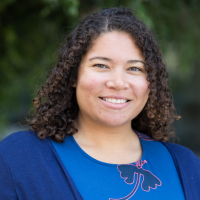
“A two-year window is very short given that many people who were forcibly sterilized were never told that this happened to them,” says Jennifer James, PhD, MS, MSW, associate professor.
Survivors recount stories of receiving a cancer diagnosis, learning years later it was an elaborate lie to cover up a forced hysterectomy, James explained. Others were told incorrectly that the only treatment for their fibroids was a hysterectomy.
James has spent the last two years working with the California Coalition for Women Prisoners to spread the word about the program, assist eligible individuals to apply and provide feedback to reparation fund administrators.
There are no plans to extend the deadline for new applicants to the fund, but those whose applications were denied – a number currently over 400 – can appeal, and James is helping to draft appeals.
Most denials are because medical records indicating a sterilization cannot be located. Securing these documents, says James, can be extremely difficult. She hopes a new, more equitable process will be established.
“To truly make amends, we need a trauma-informed process, one defined by flexible deadlines and requirements, that centers the harm done and seeks reconciliation.”
The $15.1 Billion Cost of E-Cigarette Use
Electronic cigarette use costs the United States $15.1 billion in health care expenses each year, School of Nursing researchers have found in their groundbreaking report. The study is the first in the nation to estimate health care costs attributable to e-cigarette use among Americans 18 years and older.
Young adults, ages 18-24, are using e-cigarettes at increasing rates and account for 5% of all adult e-cigarette users. “If this group continues to use e-cigarettes, we anticipate that their health care utilization and expenditure will increase as they age,” says Yingning Wang, PhD, associate professor and the study’s lead author.
They found that adult e-cigarette users, including those in low-income communities, spend $2,000 more each year on health care costs than people who do not use tobacco products.
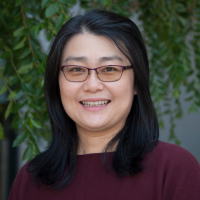
“Low-income individuals, who already face barriers to accessing health care and tobacco cessation services, face increased financial burden from e-cigarette use,” says Wang.
In fact, e-cigarette use declines as income increases.
The research team includes School of Nursing faculty members Wendy Max, PhD, professor emerita; Hai-Yen Sung, PhD, professor; Tingting Yao, PhD, associate professor; and UCSF School of Pharmacy associate professor James Lightwood, PhD.
Banning flavored e-cigarettes, restricting marketing tactics that target young people and low-income individuals, and providing free access to tobacco cessation services are just some of the efforts Wang recommends to improve the health of Americans, particularly those from vulnerable groups.
“The contributions of e-cigarette use to the country’s rising health care spending is significant,” says Wang. “We must continue to study its impact to improve the health and well-being of our communities.”



